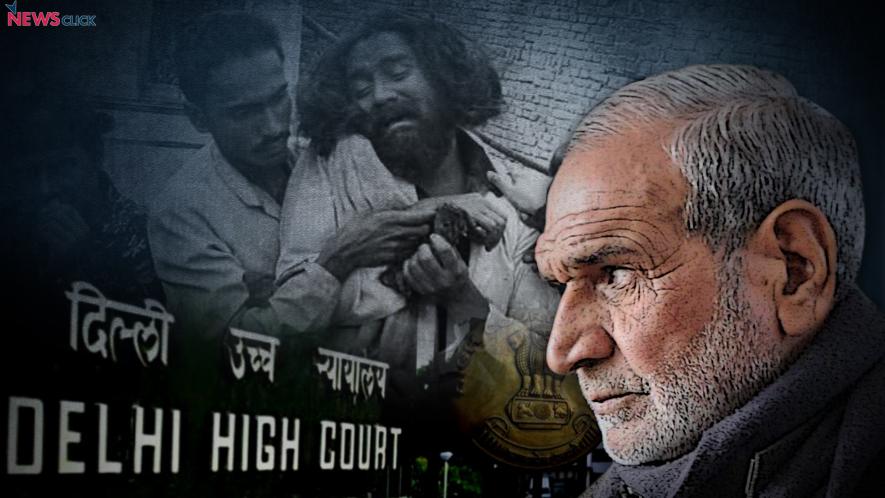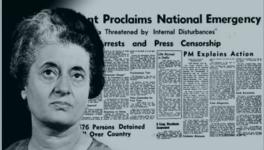Anti-Sikh Riots: Delhi HC Convicts Sajjan Kumar, Opens Debate on Genocide

A Bench of the Delhi High Court comprising Justice S Muralidhar and Justice Vinod Goel overturned Congress leader Sajjan Kumar’s acquittal for his role in the 1984 anti-Sikh riots on Monday and awarded him a sentence of life imprisonment. Kumar had been named as the first accused in the Central Bureau of Investigation’s (CBI) charge-sheet but had been acquitted by the District and Sessions Judge, whereas the other accused in the CBI case had been convicted. The other accused and the CBI had appealed the decision of the trial court, which resulted in the present conviction by the High Court.
The Role of Sajjan Kumar
The case against the accused, including Sajjan Kumar, related to the recorded incidents around the Delhi Cantonment area during the riots. In its judgement, the court notes; “In the first place, it is extraordinary that despite there being as many as 341 deaths in the Delhi Cantonment area alone over the span of four days beginning 1st November 1984, only 21 FIRs were registered and, of these, only 15 pertained to deaths/murders. Ultimately, only five bodies were recovered and that too was because of the intervention of Army.”
One of the incidents in which the court was hearing the matter related to the killings around the Raj Nagar Gurudwara where Nirmal Singh, a taxi and transport business owner, was beaten and burnt alive. The other pertained to Shiv Mandir Marg, where Sikh men were dragged out of their homes, beaten and then burnt.
Also Read | 1984 Pogrom was a Genocide, Says Delhi High Court
In both cases, the witnesses have noted the presence of Kumar, not as a member of the mob, but giving directions to the mob. He was also noted as saying “Sikh sala ek nahin bachna chahiye, jo Hindu bhai unko sharan deta hai, uska ghar bhi jala do aur unko bhi maro”. This line was narrated by a witness who at the time was on her way to report the attacks on her cousins. Kumar was a serving member of Parliament at that time.
Such statements were corroborated by other witnesses, all of whom confirmed Kumar’s presence. The High Court attributed the long delay to Kumar’s influence as well as to the fact that the witnesses only felt emboldened after the Justice Nanavati Commission was set up in 2000. The court observed that the commissions set up earlier had all been compromised and the testimonies based on police reports had been manipulated by the police. One example of Kumar’s influence was when the CBI had gone to arrest him in 1990, they had to be rescued as their jeeps were burnt and the officers were kept as hostages in his house.
Also Read | Two Convicted for Mahipalpur Carnage in 1984
While sentencing Kumar, the court noted that; “It may well be that [Sajjan Kumar] had organized peace rallies and blood donation camps and helped in rehabilitation of the victims of the violence. However, this cannot take away from his involvement in the riots in the first place which resulted in the murders of the five deceased in the present case. His claim that he enjoys the political support of the Sikh community also does not find much sympathy from this Court. The Court also cannot agree with his description of the violence as being the result of a “self-evoked provocation which resulted in an outburst of crime in Delhi and other parts of the country” when thousands of Sikh men, women, and children have been butchered while the law and order situation deteriorated all around them.”
Crimes Against Humanity
What is significant in the present judgement of the Delhi High Court is that the Court considered communal riots to fall within the ambit of crimes against humanity. In paragraph 367.6, the court notes;
“In India, the riots in early November 1984 in which in Delhi alone 2,733 Sikhs and nearly 3,350 all over the country were brutally murdered (these are official figures) was neither the first instance of a mass crime nor, tragically, the last. The mass killings in Punjab, Delhi and elsewhere during the country’s partition remains a collective painful memory as is the killings of innocent Sikhs in November 1984. There has been a familiar pattern of mass killings in Mumbai in 1993, in Gujarat in 2002, in Kandhamal, Odisha in 2008, in Muzaffarnagar in U.P. in 2013 to name a few. Common to these mass crimes were the targeting of minorities and the attacks spearheaded by the dominant political actors being facilitated by the law enforcement agencies. The criminals responsible for the mass crimes have enjoyed political patronage and managed to evade prosecution and punishment.
Bringing such criminals to justice poses a serious challenge to our legal system. As these appeals themselves demonstrate, decades pass by before they can be made answerable. This calls for strengthening the legal system. Neither ‘crimes against humanity’ nor ‘genocide’ is part of our domestic law of crime. This loophole needs to be addressed urgently.”
What makes the recognition of ‘crimes against humanity’ and ‘genocide’ significant is that till date calculated and premeditated ‘riots’ have been treated as cases of rioting. Similarly, all acts of violence committed under the pretext of a ‘spontaneous riot’ have been treated as individual crimes. The Delhi High Court in this judgement has brought into the spotlight a severe lacuna in Indian criminal law which is worth reflecting on.
Get the latest reports & analysis with people's perspective on Protests, movements & deep analytical videos, discussions of the current affairs in your Telegram app. Subscribe to NewsClick's Telegram channel & get Real-Time updates on stories, as they get published on our website.
























